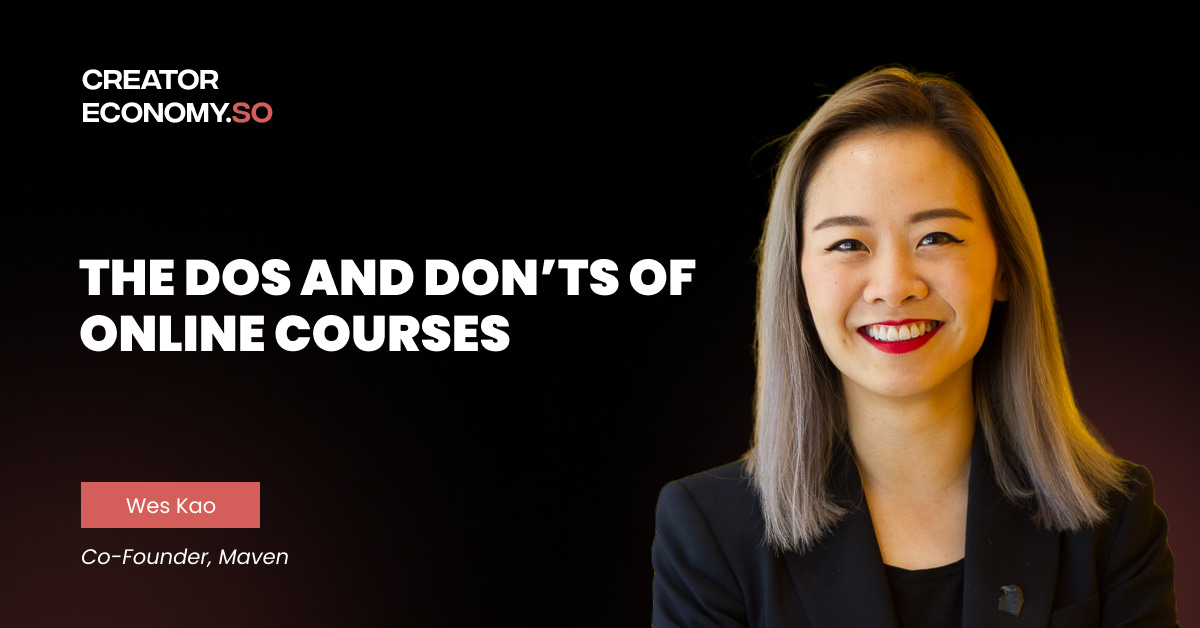Wes Kao (Co-Founder, Maven): The Dos and Don't of Online Courses
How to create, market, and teach online courses that earn $20K+ per cohort
Level up your product and creator skills in just 5 min a week. Join 50,000+ readers:
Dear subscribers,
Today, I want to show you how to create, market, and teach a successful online course.
Too many people create online courses that nobody signs up for.
Don’t be one of them. Wes Kao is the co-founder of Maven, a course platform where instructors make $20K+ per cohort. In the interview below, we cover how to:
Pick your course topic
Market your course
Make students love your course
How to pick your course topic
Welcome Wes! What led you to start Maven?

I was lucky to work with best-selling author and marketer Seth Godin in 2014.
Back then, online courses were mostly asynchronous with <5% completion rates. The altMBA that I created with Seth was one of the first mainstream cohort courses.
That experience made me realize that many experts had something to teach, even if they didn’t have a big audience.
That’s why I decided to start Maven with my co-founder Gagan Biyani years later. We want to empower the world’s experts to offer amazing cohort courses.
How do I pick a good course topic?
Start by drawing a Venn Diagram with two circles labeled outside-in and inside-out.
In the outside-in circle, list topics that people want to learn from you:
Where is there market demand?
What questions do people ask you?
What’s your track record?
In the inside out circle, list topics that you want to teach:
What topics are you obsessed with?
What can you talk about for hours without preparation?
Now look at the topics at the intersection of both circles. Pick one and fill out:
“How to [achieve outcome] for [ideal student].”
Your course will be more likely to succeed if:
It can help your ideal student achieve an urgent or important outcome.
It’s something that you’re intrinsically motivated to teach.
How do I know who my ideal student is?
Identify people who ask you questions about a topic that you’re interested in:
What’s their role and level of experience?
What are their pain points?
What’s the outcome that they want?
Should I only stick to topics that I’m an expert in?
Yes. The world is not your oyster here — and that’s a good thing.
A course is not the best format to explore your curiosity on a new topic. Instead, focus on topics that people already come to you for and that are part of your track record.
What if I pick a topic that already has a lot of competition? How do I stand out?
Build a spiky point of view — an unique perspective that others may disagree with.
A spiky point of view isn’t about being controversial but rather about presenting a well-reasoned, evidence-based view that’s unique.
For example, one of my spiky points of view is that you should market a course before creating it. Building a course before thinking about marketing often leads to crickets and tumbleweeds instead or real students.
Build your spiky point of view by asking:




